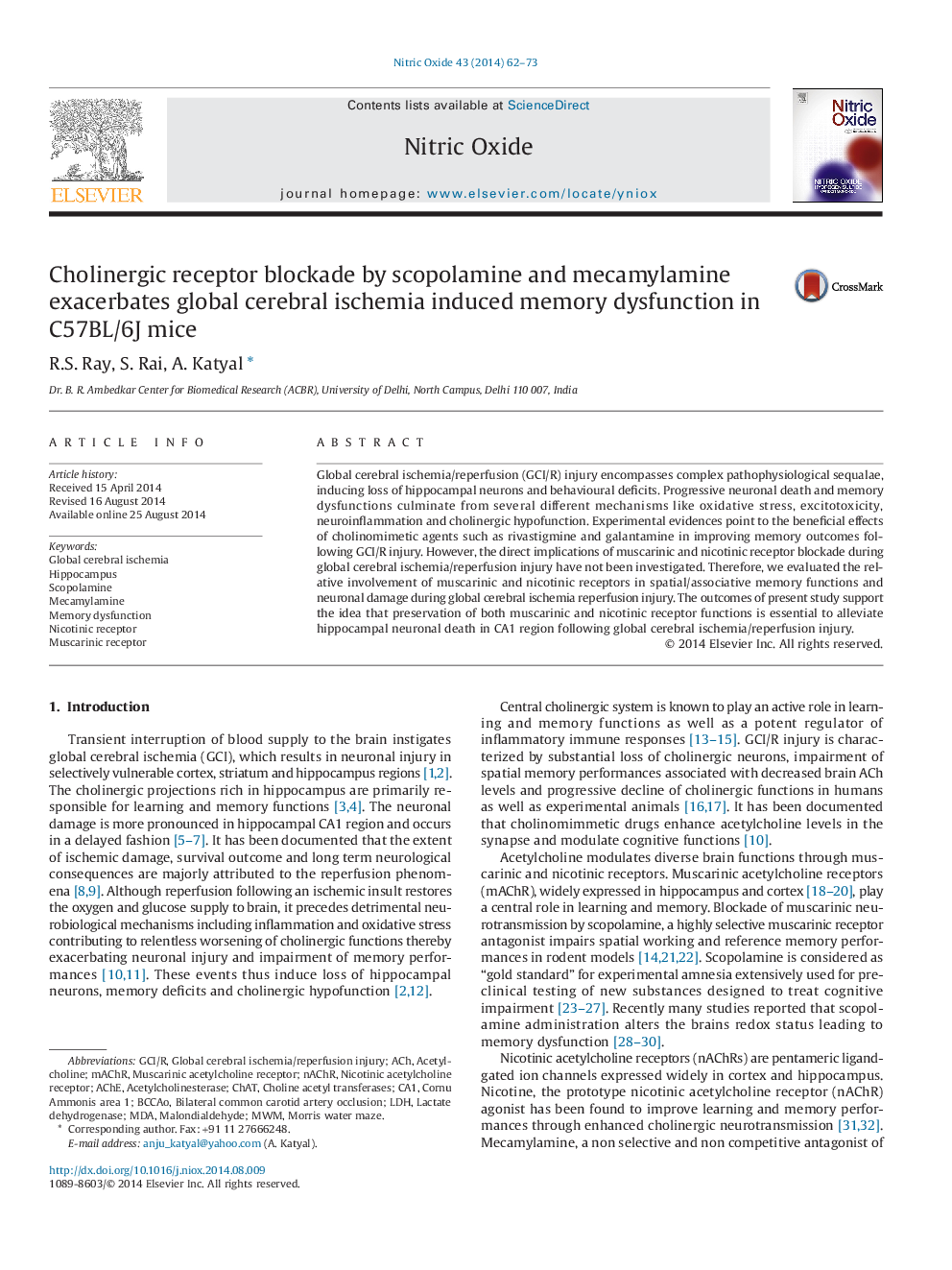| Article ID | Journal | Published Year | Pages | File Type |
|---|---|---|---|---|
| 2000508 | Nitric Oxide | 2014 | 12 Pages |
Abstract
Global cerebral ischemia/reperfusion (GCI/R) injury encompasses complex pathophysiological sequalae, inducing loss of hippocampal neurons and behavioural deficits. Progressive neuronal death and memory dysfunctions culminate from several different mechanisms like oxidative stress, excitotoxicity, neuroinflammation and cholinergic hypofunction. Experimental evidences point to the beneficial effects of cholinomimetic agents such as rivastigmine and galantamine in improving memory outcomes following GCI/R injury. However, the direct implications of muscarinic and nicotinic receptor blockade during global cerebral ischemia/reperfusion injury have not been investigated. Therefore, we evaluated the relative involvement of muscarinic and nicotinic receptors in spatial/associative memory functions and neuronal damage during global cerebral ischemia reperfusion injury. The outcomes of present study support the idea that preservation of both muscarinic and nicotinic receptor functions is essential to alleviate hippocampal neuronal death in CA1 region following global cerebral ischemia/reperfusion injury.
Keywords
MDACA1mAChRBCCAonAChRMWMcornu ammonis area 1AChAChEmemory dysfunctionAcetylcholineAcetylcholinesteraseScopolamineGlobal cerebral ischemiabilateral common carotid artery occlusionlactate dehydrogenaseLDHMorris water mazemalondialdehydeMecamylamineHippocampusChATMuscarinic receptormuscarinic acetylcholine receptornicotinic acetylcholine receptorNicotinic receptor
Related Topics
Life Sciences
Biochemistry, Genetics and Molecular Biology
Biochemistry
Authors
R.S. Ray, S. Rai, A. Katyal,
